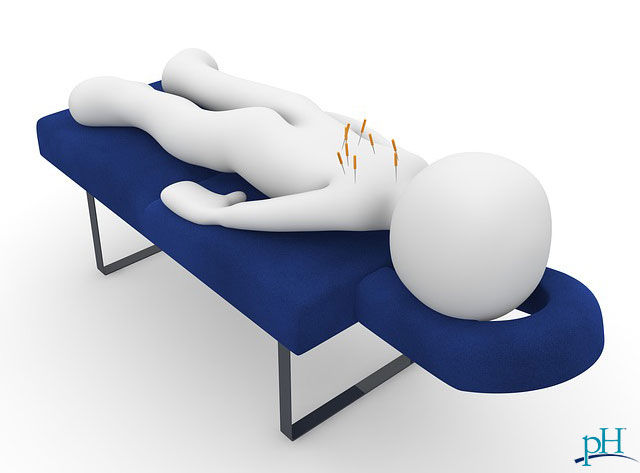What are the “benefits” of acupuncture and does it really work?
9 years ago | Hospitals
By pH health care professionals
Based in traditional Chinese medicine, acupuncture involves having thin needles placed in your skin. Practitioners say they choose specific areas of the body to modify the flow of energy in order to relieve physical or emotional ailments. They say that when an acupuncture needle is inserted into the body, the body releases endorphins that decrease sensations of pain and trigger the immune system to kick in.
Acupuncture has been around for over 2,500 years, but it wasn’t until just recently that the mainstream medical community began to embrace the practice, with some of the nation’s top hospitals now offering it to patients.
Many people rave about the benefits they’ve reaped from acupuncture, while others are still skeptical about the needle-poking practice and wonder if science can really back it up.
So that’s what a team of researchers set out to assess. Pulling existing research on the subject, they set out to compare acupuncture to standard medical treatment (like an exam at the doctor’s and prescription drugs) for back or neck pain, shoulder pain, chronic headaches, and osteoarthritis.
What they found? “If acupuncture were a drug, we’d say the drug works,” said co-author Andrew Vickers in Time, noting a statistically significant benefit for acupuncture compared to standard medical treatment.
They found that acupuncture is indeed an effective treatment option for chronic pain.
In addition to chronic pain management, acupuncture is also used for fibromyalgia, headaches, labor pain, menstrual cramps, cancer-related symptoms like nausea and vomiting from chemotherapy, and even fertility.
But are the benefits all in your head?
You have to wonder, is it the specific needle placement that improves pain, or is it the psychological belief that the needles will help?
To answer this question, the research team compared correct needle placement (true acupuncture) to random needle placement (sham acupuncture). They found that correct needle placement does actually make a difference. So it’s not just a “placebo effect” (where it works simply because you believe it will work).
However, it was a “modest” difference, suggesting that there are other factors in addition to specific needling that contribute to the beneficial effects of acupuncture. So while your psychological belief that the treatment will work is not the reason acupuncture it works, it may certainly contribute to its positive effects.
Want to try it?
If you are experiencing back/neck pain, shoulder pain, chronic headaches or osteoarthritis, talk to a doctor about whether acupuncture is a safe option for you to try!
Enjoy Your Healthy Life!
The pH professional health care team includes recognized experts from a variety of health care and related disciplines, including physicians, health care attorneys, nutritionists, nurses and certified fitness instructors. To learn more about the pH Health Care Team, click here.



